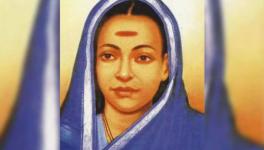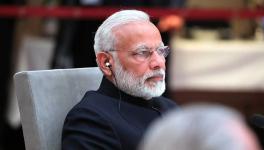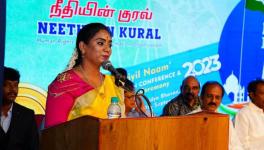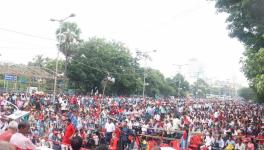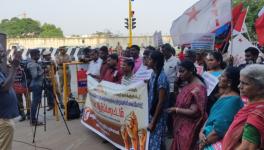Is Central ‘Advisory’ on Caste Split of MGNREGS Wages Spurring Friction in Villages?
Representational use only.
New Delhi: Is a Central ‘advisory’ to states on payment of MGNREGA wages proving counter-productive in our already caste-ridden society? It seems so, going by a recent study of wage transfers in 10 states.
While a recent study has revealed that 71% MGNREGS workers did not get their wages on time, what is disturbing are reports of caste split in the distribution of whatever wages are being doled out to poor villagers, thereby giving rise to friction within communities.
For instance, in Rajasthan’s Ajmer district, tension is running high ahead of Diwali because some villagers have alleged that SC/ST workers in MGNREGS – the rural job guarantee scheme-- are being paid wages faster than them, according to a report in The Hindu newspaper.
It may be noted that many poor villagers depend on wages from the Mahatma Gandhi National Rural Employment Guarantee Scheme (MGNREGS) for whatever festivities they observe on Diwali, which falls on November 4 this year. With alleged caste split of wages delaying payments, some poor villagers have been left high and dry.
Karthik Singh, a coordinator with the Rajasthan Asangathit Mazdoor Union told The Hindu that villagers belonging to the Scheduled Caste and Tribes (SC/ST) were paid wages for the same work within 15-20 days while those from other communities had to wait for two months.
Singh claimed that this had created tension among villagers. When asked, the panchayat officials said they submitted the entire list of workers to be paid wages, but the “order to split the payment by caste has come from the higher-ups”.
Apparently, several NREGA activists have complained of wage payments being split along caste lines in some states, such as West Bengal, Jharkhand, Karnataka, Bihar and Tamil Nadu, after a Central government advisory dated March 2 to states, asking them to split wage payment on caste lines. However, after objection from some states that it would create “disharmony” and “backlash”, the order was reportedly withdrawn. However, no order on revoking the directive has been issued as yet by nodal Rural Development Ministry, which only said that the payment system was being “streamlined”.
As a result, some states are going ahead in implementing the Rural Development Ministry’s ‘advisory’ on caste split of wage payments, thereby giving rise to village-level social tensions.
According to The Hindu report, citing an analysis by researchers from Libtech of 18 lakh fund transfer orders from 10 states between April and September, SC workers under MGNREGS were getting paid “significantly more faster” than other workers.
This raises the question of whether the whole system is reigniting social friction at the village level, fanning more resentment against SCs/STs?
Rajendra Narayanan, a professor in Azim Premji University in Bengaluru, who led the Libtech research, told The Hindu that caste split of wage payments goes against the very spirit of the MGNREGA – its universality.
“The Centre transferred money to 45% of SC workers within the mandated even days, while 80% got paid within 15 days....However, among non-SC/ST workers, only 26% were paid within seven days, and 51% were paid within 15 days.
But there is another side of the story, too. The Social Justice Ministry has said it had got complaints from Andhra Pradesh and Telangana that wage payments for SC/STs workers were getting delayed “creating dissensions” within village communities. Similar complaints are also coming from Tamil Nadu, the report said.
Admitting that the Central advisory on MGNREGA wages, being implemented by some states, was aggravating cast friction within village communities, Abhay Kumar from the Grameen Coolie Karmikaran Sangathane, told The Hindu that “for years, we have seen MGNREGA workers unions helping to remove casteism, as women workers work together, and so start to socialise with each other across communities. But after this order, there is backlash and divisions are coming back.”
Kumar said the Central order is helping in redrawing caste lines among communities. “Earlier, they used to say the word “we”, saying “we are fighting for our wages”. Now, it has gone back to “ours versus theirs”.
Get the latest reports & analysis with people's perspective on Protests, movements & deep analytical videos, discussions of the current affairs in your Telegram app. Subscribe to NewsClick's Telegram channel & get Real-Time updates on stories, as they get published on our website.










